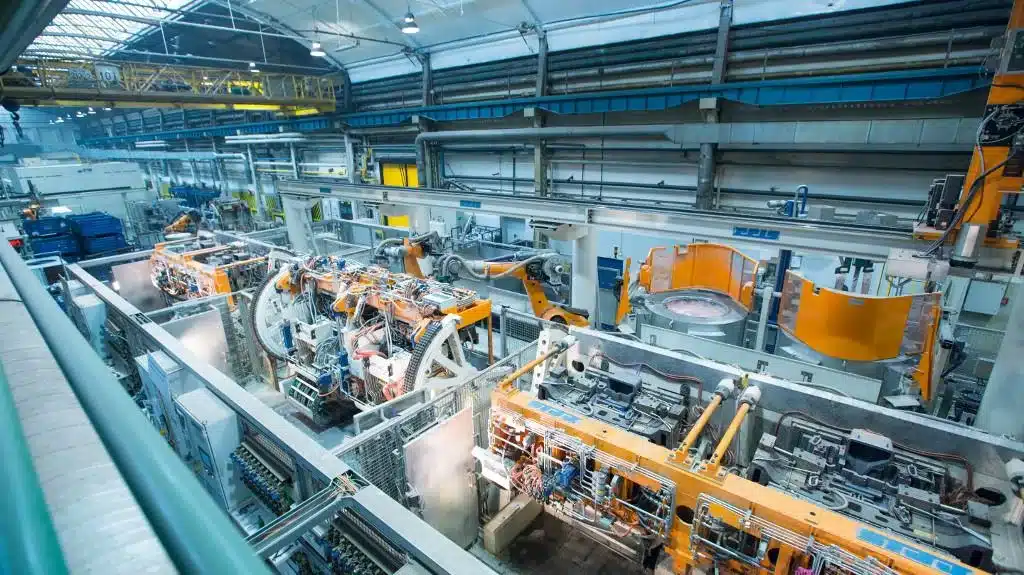The high pace of new technology development (including AI) and the necessity of quickly implementing them in automotive businesses, significantly influence their method of operation. Modern organizations use data and digital solutions for automating and optimizing the production processes, creating innovative products, and continuously expanding the skills of their employees. In the latest episode of mOTO TEMAT, hosted by Agnieszka Czajka – General Manager of OTOMOTO – the guest is Stefanie Hegels – CEO of Volkswagen Poznań, who discusses the process and impact of digital transformation in Volkswagen plants in Września and Poznań.
mOTO TEMAT is a series of conversations Agnieszka Czajka has with business and automotive experts. During the meetings, they discuss the current market situation, challenges facing the industry, and projections that are becoming part of everyday automotive life.
The new edition sponsored by Forbes begins with an episode where Stefanie Hegels – CEO of Volkswagen Poznań, and Director of the plant in Poznań, who has worked in the Volkswagen group for 27 years, shares her views. The underlying theme of the whole series will be the future of automotive and business viewed from multiple perspectives.
Automation Requires New Skills
The focus of the conversation was on progressive automation processes, which on one hand speed up production, and on the other, require the skillful creation of new competencies among employees. In Volkswagen factories, welding guns were replaced by robots, but these machines need specialists who can program them. To effectively expand team skills, employee training also requires a new format – a significant part of it is now part of team meetings and VR technology is used to conduct them. Therefore, new technologies are not only the subject of training, but also a training tool.
Green, Responsible Production at Every Stage
The adoption of new technologies allows for the implementation of solutions that enable enhanced concern for the environment. Volkswagen, in adherence with the Paris Agreement, is on its way to achieve carbon neutrality by 2050. To do this, it is implementing comprehensive measures including a new approach to production – responsible use of energy produced during the production process and increasingly making use of renewable energy sources at all stages of production. The energy produced in Volkswagen plants can heat up around 6500 apartments in Poznań. Photovoltaic farms are operating in Września, and CO2 emission norms also apply to all subcontractors of the manufacturer.
Team Diversity is a Key to Success
Agnieszka Czajka and Stefanie Hegels agree that a diverse working environment is a platform for discussion, for challenging the status quo, and for jointly developing optimal solutions. Teams made up of specialists differing in gender, age, and experience are extremely valuable for any company. As leaders and pioneers in management positions in a stereotypically male-dominated sector, they set new standards and cannot imagine returning to situations where they were the only women on the team. Modern organizations in the sector are open to women and appreciate the value they bring to teams.
The Future of Volkswagen in Poland
The production plants in Poznań and Września employ over 9500 people and produce cars for sale in markets all over the world every day. Over 1000 models of Caddy and Crafter are produced each day. Production of the hybrid version of the Caddy model (plug-in hybrid) will begin this autumn, something that Stefanie Hegels views as a good, interim step towards electromobility. Soon the iconic Volkswagen Golf is expected to join the model portfolio, even though commercial vehicle models are to remain the focus of Volkswagen Poznań.
Source: https://managerplus.pl/transformacja-cyfrowa-w-volkswagenie-na-pelnych-obrotach-82374
